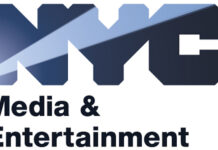PTC Retains Lead in ABI Research’s Enterprise AR Platforms Ranking
Over the past few years, the number of augmented reality (AR) software and platform competitors has grown, and these competitors have also grown in scale and capability. With an AR market expected to surpass $100 billion in total market revenues by 2024, the need for a comprehensive, flexible, and scalable platform to support augmented reality use cases is an increasingly critical component of implementation. In the new Enterprise Augmented Reality Platforms competitive assessment, global tech market advisory firm ABI Research finds that PTC leading in present-day capabilities and forward-looking preparedness.The Enterprise AR Platforms assessment analyzed 8 AR platform players operating today: PTC, Ubimax, RE’FLEKT, Atheer, Upskill, ScopeAR, Librestream, and Fieldbit. Scoring criteria were split across present day (implementation) and forward looking (innovation) criteria. Implementation criteria included customers/partnerships/footprint, platform breadth, device support, user experience options, accessibility, and pricing. Innovation criteria included use case applicability, IoT synergy, cloud connectivity, machine vision capabilities, data visualization capabilities, and transformative technology capabilities.
“The most competitive players in augmented reality platforms today are able to serve a few key use cases, while also allowing flexibility in offering throughout the lifetime of a customer engagement,” says Eric Abbruzzese, Research Director at ABI Research. “Over the past few years, showcasing value to a customer was limited to the pilot phase and small-scale engagements. Today, there is still the need to show upfront ROI potential at this scale, but equally important is an ability to scale up with the customer as they grow in number of users and types of use cases. The most competitive operators are able to span these needs while adding value through differentiated portfolio offerings.”
PTC takes the top spot for a couple primary reasons: broad and deep AR capabilities are backed up with value-add offerings and impactful enabling technologies. Augmented reality has seen a strong growth in industrial markets, where PTC is already strong and can leverage their existing products like Creo and Windchill to strengthen related aspects of an AR implementation. Ubimax and RE’FLEKT take the second and third spots; Ubimax is a leader in platform breadth and device support allowing for great flexibility and capability for growth, while RE’FLEKT offers a unique approach to content creation and distribution for customers.
This assessment is of course not inclusive of all AR competitors. There are numerous use-case focused players that purposefully limit platform breadth in order to maximize value around a specific use case or application. At the same time, there is increasing desire for AR platforms that can perform in multiple areas. This can include supporting numerous use cases with a single platform, such as remote expertise, training, and data logging, but can also include enabling technologies like machine vision and SLAM tracking, device management, and content creation. These technologies are often differentiators in this space, with companies expanding their portfolio reach and overall value through them.
There are nearly infinite variables involved in a proper augmented reality investment and implementation, all of which can prove to be a potential barrier. With the right enabling platform, these variables and barriers can be minimized, leading to faster and more complete ROI. “Not every customer needs a complete end-to-end solution, and certain aspects of a partner will be relevant based on a customer’s KPIs, examining target use cases, environment, and workflows. A proper understanding of competitive strengths and weaknesses across key areas will help make partnership opportunities clearer and more effective,” concludes Abbruzzese.
These findings are from ABI Research’s Enterprise Augmented Reality Platforms competitive assessment report. This report is part of the company’s Augmented and Virtual Reality research service, which includes research, data, and analyst insights. Competitive Assessment reports offer comprehensive analysis of implementation strategies and innovation to offer unparalleled insight into a company’s performance and standing in comparison to its competitors.


